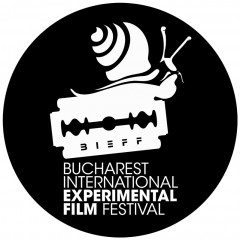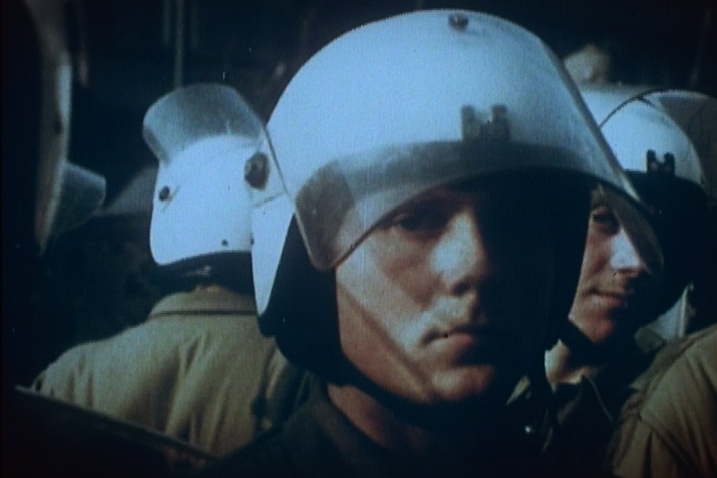THE GENERATION OF SACRIFICE recreates the terror of communist Romania of the 80’s, when the Secret Police aparatus included even very young spies, high school teenagers, convinced to betray their own family and friends. Starting from the Secret Police files, the French filmmaker JEAN CHRISTOPHE makes a sharp and disturbingly topical X-ray of the Romanian mindsets.
Ioana Mischie: An impressively powerful statement about the ones who betray and are betrayed, a subjective interpretation of the Romanian histoire fleuve, THE SACRIFICE GENERATION is not only portraying the 80’s generation, but a whole field of patterns, changes and mentalities. How does this generation differ to the newer and older generations?
Jean Christophe: I’m from the 80’s generation and more importantly from “the other side”. I remember being indoctrinated to despise or mock anything coming from the east. My grandparents escaped Lithuania during the Second World War and they had quite the discourse on why their point of view was legitimate. Many who lived the same predicament they had echoed their personal tale of tragedy. If you banish the extreme situations you can look at what essentially worked out for the better or worst. In the 80’s the United States appeared disproportionatelyfilled with “riches”. When I was in high school I had spent a year in France. I remember classmates, and even their parents, asking me how many cars we owned or in some cases, how many pools. It was unbelievable to see how little we knew about each other. That mentality came from existing stereotypes in a time when communication was still poor. Today, we still have stereotypes even though communication comes in many different forms.
How does this generation differ to the newer and older generations? That’s a complex question and I’m not sure how to answer it but here’s an anecdote I can share with you. I once heard an interview from an American soldier coming back from his tour in Iraq in 2009. He had been on the front lines for several years. Upon completion of his tour he came back to the States only to find he was ridden with debt and not equipped to fight this battle. Ultimately he feared the debt collectors more than the enemies he could see on the battlefield. There is something desperately wrong with that picture. The new generation can retrospectively understand what was wrong, but I’m not sure if we can see what is right. We’re now free to rise and fall as we please but the human psyche cannot always cope with that.
Ioana Mischie: Structurally, this creative documentary evolves from animation to a collage made of archive footage. You innovatively mix animation, archive collage and fictional soundtrack, to recreate the terror of communist Romania of the 80’s. Why did you choose this eclectic way of expressing the story and, as the approach seems rather complex, for how long was the research of the subject?
Jean Christophe: The research for the project began roughly a year before I was studying the archives. Before I had read an article in Romania in 2010 about a list of some 50 young agents that were almost made public and wanted to meet these people. I had equally heard a podcast about a Romanian woman who had discovered her past was not what it had seemed once she had read her Securitate file. Her own family had spied her on.
My interest wasn’t in discovering the already compelling ideology of a young informant but the daily lives of adolescents dealing with this situation. My desire was to research the pass in order to direct subtle modifications to question the history of a unique propaganda from the political party that has engulfed an entire generation. With that goal in mind I began working with historians, politicians, artists as well as filmmakers that allowed me to have both points and counter points of a sensitive situation. From both, cinematographic and document archives, I proceeded to select bits and pieces to concoct a script based on the Romanian youth of the 1980s, my generation. I worked with a Romanian animator to contemporize the images in subtle fashion. I had wanted to include my vision as a filmmaker inside the existing images of propaganda. “Frame by frame” we dissected specifics where, for example, I would have pulled focus if I had been the filmmaker at that time. We color corrected, created new « motions », modern depth of fields and exact lighting to existing footage. A lot of the images were redesigned in order to express the contemporary of the situation. It was essential to use existing images because they already live in the memory of a time gone by. The principal objective was to derail the spectator that would not be able to tell the difference between the images, the script, the propaganda songs and the texts from the Securitate.
Ioana Mischie: How challenging was for you as a foreigner to explore a Romanian reality and what motivated you to focus on this specific generation?
Jean Christophe: Ironically I never truly feel like a foreigner almost anywhere I go. It is perhaps the cultural mixture of my origins. Also my frequent travels have now made it easier to intergrade wherever I am. I was motivated by this particular generation because, again, it is my generation. I wanted to visit the documents that had just been rendered public a few years prior. Through local collaborators, I studied the filmed and written archives to attempt to understand the last 9 years of Romania’s communist history. This particular step was a fruitful endeavor. Despite the fact that the archives are currently public information, the reality is that a steep mountain of a reluctant administrative hierarchy needs to be climbed. As a foreigner that step was probably easier for me than a Romanian, and that is not right.
Ioana Mischie: Having the feeling of a world going round, the archive selection shows how much we are different and how much we are the same, as a nation: the old habits seem contagious for the present. Could this film be perceived also as a poetical-philosophic warning for the laissez-faire attitude of the younger generations? Or, in other words, do you feel the “sacrifice” of that generation became effective in our contemporary times or did not even matter too much?
Jean Christophe: I did not experience first hand what communism was like. I also know that it was different in many countries. Romania was particular and Ceausescu appeared to have had respect from both vantage points in the beginning. It had gained a certain independence from Moscow. Sadly I’m not convinced that the sacrifice made by the generation I speak of has been entirely worthy. It is important to note that in most cases their sacrifice was mandatory. The new system in power has left many fighting for the bare essentials and is continuously ruining communities and families. It is certainly different than in 1985, but some results appear to be similar. The corruption is more visible now and people have the freedom to speak about it but it usually falls upon deaf ears. If not a warning, I would hope that this project would generate fruitful debates and raise the right questions. I would question global trends and short-term solutions. Where some people sacrificed too much, others have not done enough. We need to level out the playing field because it touches all of us.
Ioana Mischie: You probably started this project with certain expectations, as Romanian Communist times were very debated even in worldwide mass-media. Was there anything that you discovered while researching and making the film that you didn’t expect?
Jean Christophe: To be honest, I had no idea what to expect. I was told that it would be very difficult to get my hands on both sets of archives and that the principal actors would never speak to me, or tell me the truth. I was surprised that history still holds so much weight in the present. Even people born after 1989 were hesitant as if the old guard was still watching from a vantage point. I found that troubling.
When you’re reading the archives and you see a 15 year old’s penmanship you start to read it differently. You understand the fragile balance between an adolescent’s forced testimony and the vulnerability you may normally have at that age. Their use of language was key. It inspired me to write a simple script and ultimately “re-create” the lives of two young informants. That was not in my initial plan.
More about THE GENERATION OF SACRIFICE.


